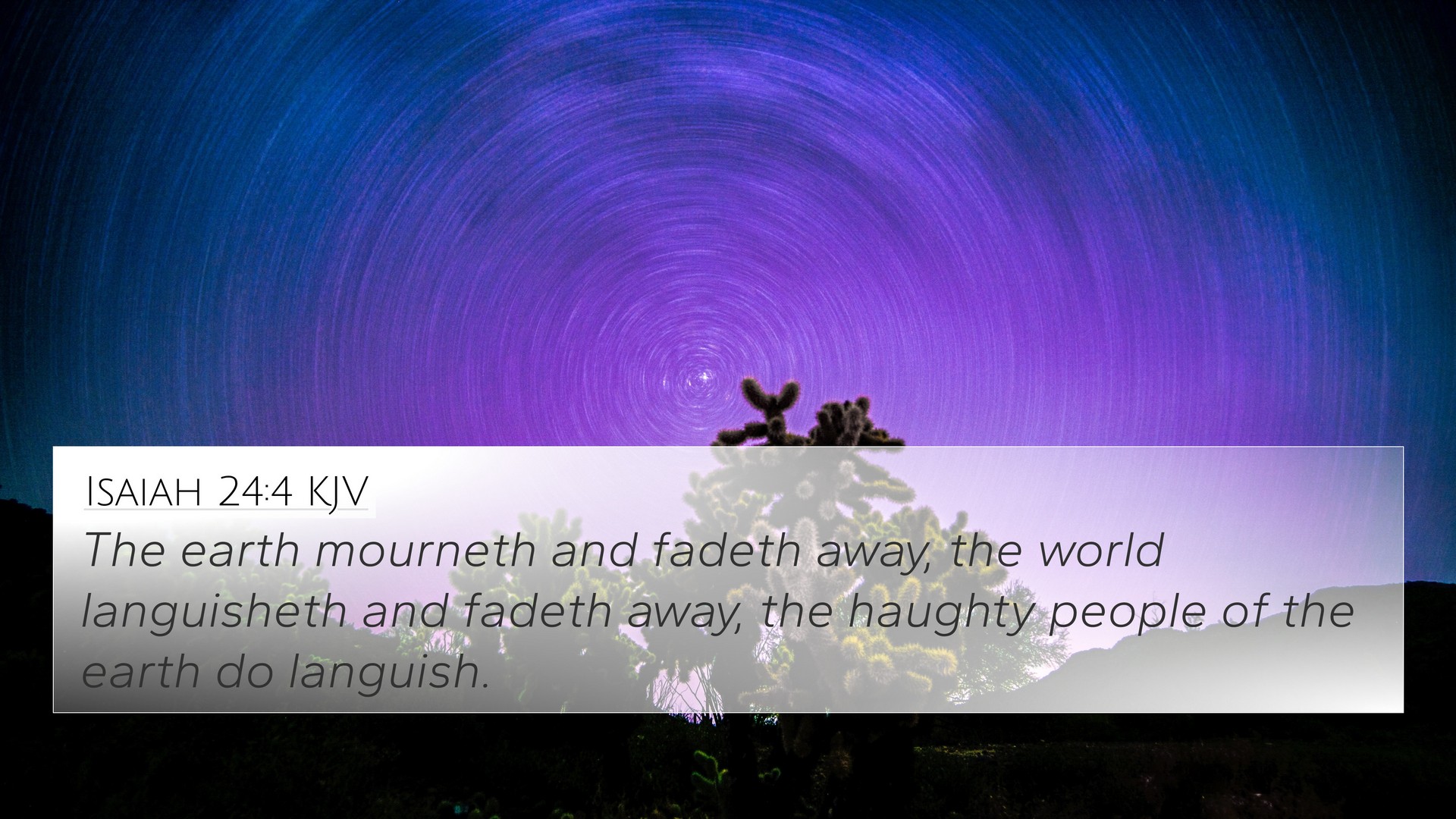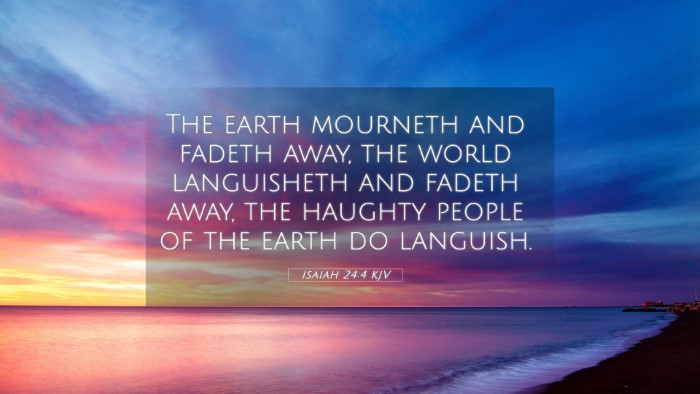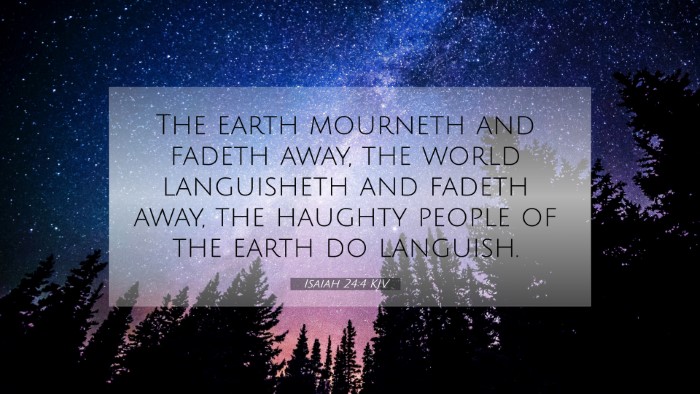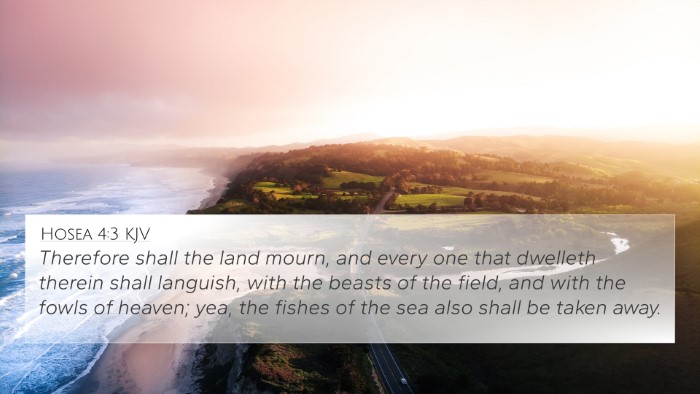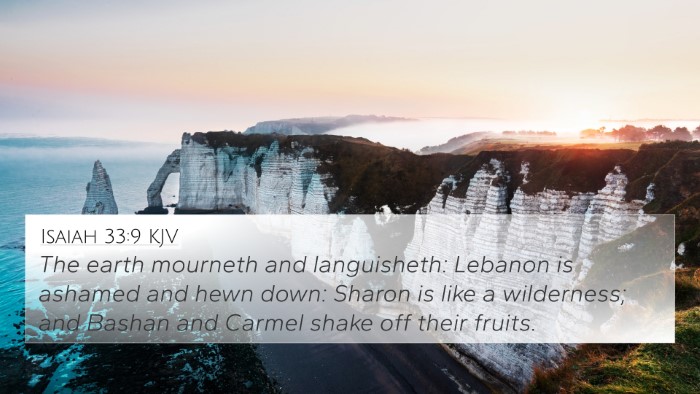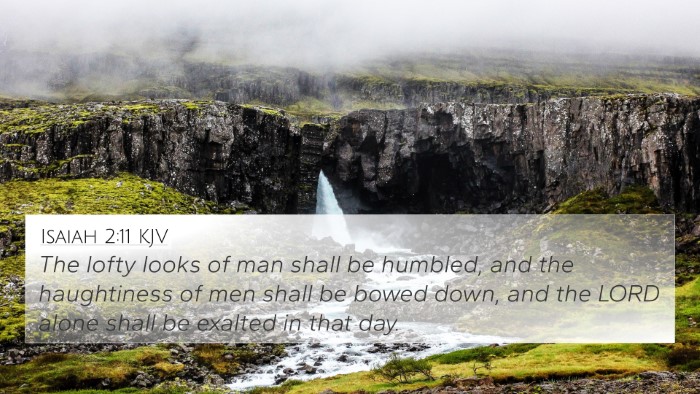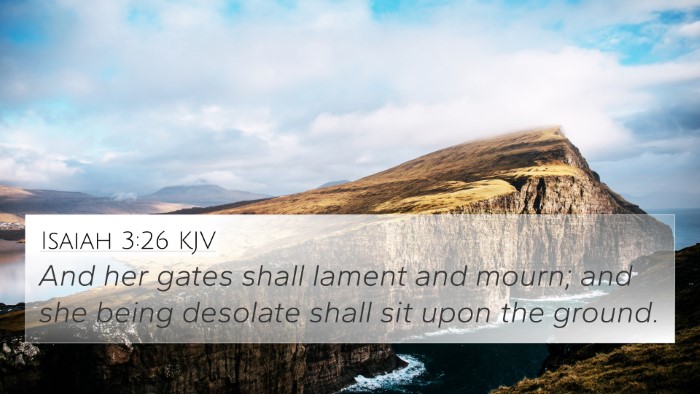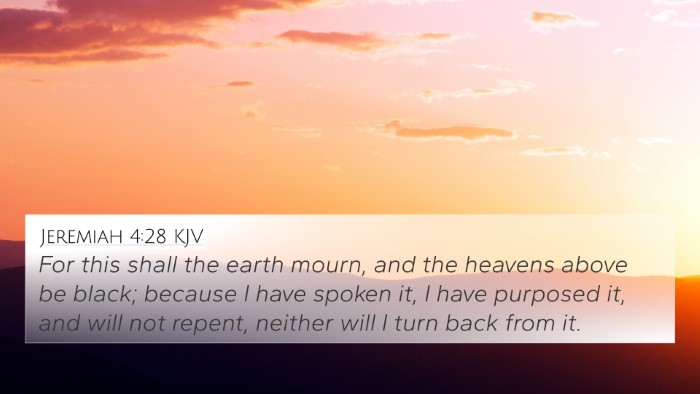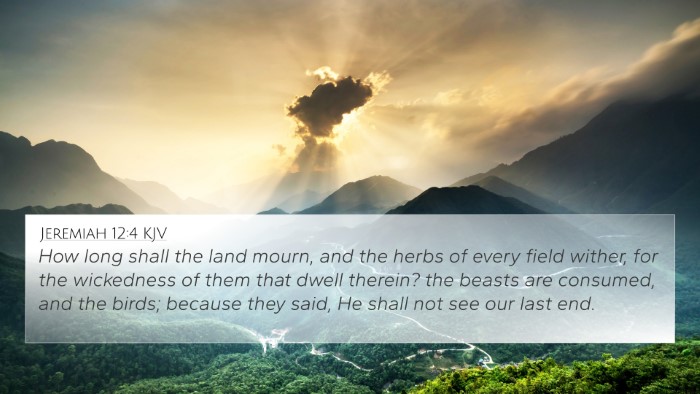Understanding Isaiah 24:4
Overview: Isaiah 24:4 presents a stark and sobering image of desolation and judgment. This verse serves as a profound reminder of the consequences of human sin and disobedience against God. In this interpretation, we delve into insights gathered from public domain commentaries, providing comprehensive analysis and cross-referencing with related scripture.
Verse Analysis
Isaiah 24:4 (KJV): "The earth mourneth and fadeth away, the world languisheth and fadeth away, the haughty people of the earth do languish."
This verse encapsulates the theme of cosmic judgment where the earth itself is representative of the whole creation responding to human rebellion. It draws attention to the plight of humanity and emphasizes the moral order set by God.
Commentary Insights
Matthew Henry's Commentary
Henry emphasizes the universality of the mourning depicted. The earth 'mourning' symbolizes the weight of sin that affects not only humanity but also creation itself. The fading away is indicative of the judgment that leads to destruction — a reminder of the fallen state due to Adam’s transgression (Genesis 3).
Albert Barnes' Notes
Barnes highlights that the 'haughty people' represent the arrogant and prideful that refuse to humble themselves before God. This verse, according to Barnes, serves as a warning to nations and individuals alike — pride leads to inevitable downfall, echoing Proverbs 16:18, "Pride goeth before destruction."
Adam Clarke's Commentary
Clarke points out the poetic nature of the passage, which utilizes a parallel structure to illustrate the severity of the judgment. 'Languish' suggests a state of weakness and helplessness, conveying both physical and spiritual decay. The overarching theme conveys that divine judgment inevitably follows human folly.
Thematic Connections
This verse connects thematically with several biblical ideas regarding judgment, pride, and the nature of the world’s response to sin. Below are some relevant cross-references that further illuminate the messages intertwined within Isaiah 24:4:
- Genesis 3:17-19: The curse on the ground due to Adam's disobedience.
- Proverbs 16:18: The warning that pride leads to destruction.
- Romans 8:22: All creation groans and labors with birth pangs because of sin.
- Isaiah 1:4: Acknowledgment of a sinful nation - referring to the people’s rebellion.
- Jeremiah 12:4: A lament on the land and its desolation due to wickedness.
- Ezekiel 18:30: Calls for repentance, denoting the relationship between sin and ill fate.
- Revelation 21:1: The promise of a new heaven and new earth, free from the effects of sin.
Practical Implications
Isaiah 24:4 serves as a reflective text for modern readers, urging introspection towards our actions and their impact. It encourages the faithful to recognize the importance of humility and the detrimental effect of pride and sin.
Cross-Referencing and Bible Study Tools
For those engaging in bible cross-reference guides, tools such as a bible concordance can help in tracing similar themes and verses. Developing a system for cross-referencing biblical texts helps in understanding the deep connections within scripture. Methods of cross-referencing Bible study can be utilized to connect thematic elements as well as direct connections between verses.
Conclusion
In conclusion, Isaiah 24:4 serves as both a warning and a call for humility in the face of God's sovereignty. Through understanding and cross-referencing with other scriptures, we can gain richer insights into the moral fabric of biblical teachings and their implications for our lives today. This interpretative approach not only enhances our biblical literacy but allows for deeper engagement with Scripture.
